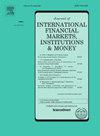The domestic and spillover effects of fiscal consolidation: The role of fiscal instruments, exchange rate regimes, and capital controls
IF 6.1
2区 经济学
Q1 BUSINESS, FINANCE
Journal of International Financial Markets Institutions & Money
Pub Date : 2024-12-24
DOI:10.1016/j.intfin.2024.102106
引用次数: 0
Abstract
This paper develops a two-country dynamic general equilibrium model with a range of fiscal policy instruments and external policies. We employ this model to examine the transmission mechanisms of fiscal consolidation and evaluate both the domestic and spillover effects of various fiscal consolidation strategies. In particular, we focus on how exchange rate regimes and financial openness influence these effects. Our findings are as follows. Firstly, a reduction in government investment significantly harms economic growth, while a reduction in transfer payments worsens income inequality. Additionally, a rise in corporate social security taxes has the most pronounced negative impact on the labor market. Secondly, the reforms of the exchange rate regime and financial account policy contribute to creating more favorable conditions for fiscal rebalancing. Lastly, China’s 2021 fiscal consolidation hit the domestic economy negatively both in the short and long term. However, it had a positive spillover effect in the short term, with a negative effect in the long term. Moreover, relative to the actual consolidation measure, the labor market-friendly and growth-friendly scenarios lead to less declines in employment and output, whereas the social-friendly scenario results in a lower domestic Gini coefficient and is preferred from a welfare perspective.
财政整顿的国内效应和外溢效应:财政工具、汇率制度和资本管制的作用
本文建立了一个包含一系列财政政策工具和外部政策的两国动态一般均衡模型。我们利用这一模型来研究财政整顿的传导机制,并评估各种财政整顿战略的国内效应和溢出效应。我们尤其关注汇率制度和金融开放度如何影响这些效应。我们的研究结果如下。首先,减少政府投资会严重损害经济增长,而减少转移支付则会加剧收入不平等。此外,企业社会保障税的增加对劳动力市场的负面影响最为明显。其次,汇率制度和金融账户政策的改革有助于为财政再平衡创造更有利的条件。最后,中国 2021 年的财政整顿对国内经济造成了短期和长期的负面影响。然而,它在短期内产生了积极的溢出效应,在长期内则产生了负面影响。此外,与实际整顿措施相比,劳动力市场友好型和增长友好型方案导致的就业和产出下降较少,而社会友好型方案导致国内基尼系数较低,从福利角度来看更可取。
本文章由计算机程序翻译,如有差异,请以英文原文为准。
求助全文
约1分钟内获得全文
求助全文
来源期刊
CiteScore
6.60
自引率
10.00%
发文量
142
期刊介绍:
International trade, financing and investments, and the related cash and credit transactions, have grown at an extremely rapid pace in recent years. The international monetary system has continued to evolve to accommodate the need for foreign-currency denominated transactions and in the process has provided opportunities for its ongoing observation and study. The purpose of the Journal of International Financial Markets, Institutions & Money is to publish rigorous, original articles dealing with the international aspects of financial markets, institutions and money. Theoretical/conceptual and empirical papers providing meaningful insights into the subject areas will be considered. The following topic areas, although not exhaustive, are representative of the coverage in this Journal. • International financial markets • International securities markets • Foreign exchange markets • Eurocurrency markets • International syndications • Term structures of Eurocurrency rates • Determination of exchange rates • Information, speculation and parity • Forward rates and swaps • International payment mechanisms • International commercial banking; • International investment banking • Central bank intervention • International monetary systems • Balance of payments.

 求助内容:
求助内容: 应助结果提醒方式:
应助结果提醒方式:


